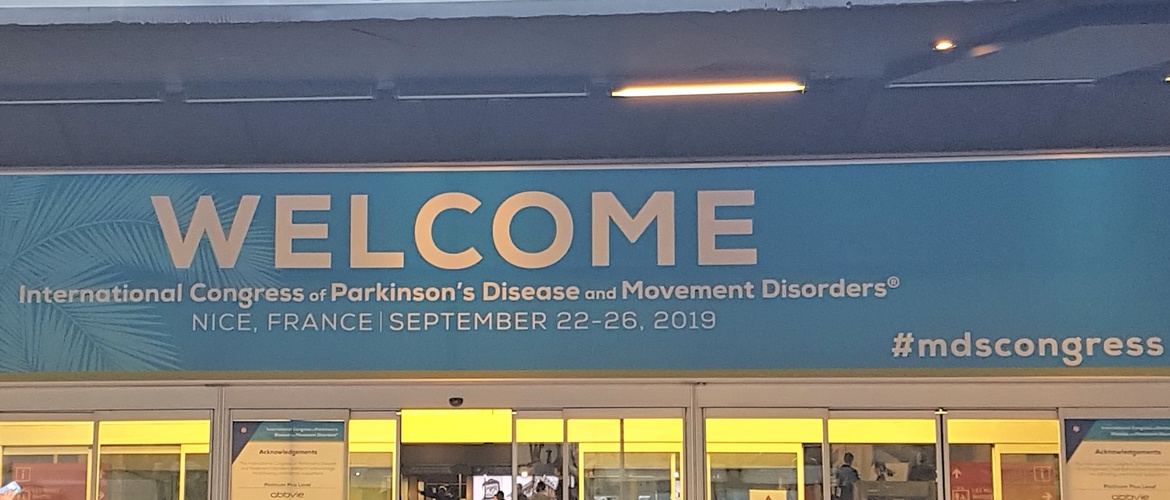
Choose a channel
Check out the different Progress in Mind content channels.

Progress in Mind

Distinguishing atypical parkinsonian syndromes, such as progressive supranuclear palsy (PSP) and multiple system atrophy (MSA) from Parkinson’s disease (PD) can be challenging due to the overlap of signs and symptoms between these diseases. Investigations important for correct diagnosis and potential treatment options for MSA and PSP were the topics of a therapeutic plenary session at the International Congress of Parkinson’s disease and Movement Disorders in Nice, France.
Parkinsonian disorders can broadly be classified into neurodegenerative- and secondary parkinsonism, with the former divided into Parkinson’s disease and atypical parkinsonian disorders. Atypical parkinsonian disorders can further be classified based on their primary proteinopathy profiles, with ample evidence for alpha-synuclein pathology in MSA and Lewy body dementia (LBD) and tau pathology in PSP and corticobasal degeneration (CBD)1. The diagnosis of atypical parkinsonism is made based on clinical signs, with a requirement for akinesia, tremor, rigidity or postural and gait instability to be present, as well as atypical features for PD – often referred to as “red flags”. These include limited or no response to levodopa; early postural instability or falls; supranuclear gaze palsy/saccade abnormalities; and rapid progression. There are several phenotypes of PSP, with the classical form of PSP (Richardson’s syndrome) presenting with the above-mentioned symptoms, but also dysarthria, dysphagia, and frontal dementia.2,3 There is overlap between the PSP phenotypes with patients often qualifying for multiple diagnostic categories. However, when Multiple Allocations eXtinction (MAX) rules were applied to the MDS-PSP criteria, the proportion of patients with multiple diagnostic allocations were reduced.4
Proper identification of phenotypes is very important, as patients with PSP-Richardson syndrome progress significantly faster than those with PSP-Parkinsonism
As shown by Shoeibi and colleagues5, proper identification of phenotypes is very important, as patients with PSP-Richardson syndrome progress significantly faster than those with PSP-Parkinsonism, although both groups had similar disease severity at screening.
Patients with MSA have autonomic failure such as orthostatic hypotension, urinary problems and erectile disturbances and further presents either with “classic” parkinsonian signs (MSA-P), or with cerebellar signs (MSA-C) with gait/limb ataxia and speech problems. However, recent literature has highlighted the need for a revision of the second consensus criteria6 for an overall MSA diagnosis7, as it has been shown that a fairly low proportion of patients diagnosed with MSA met the pathological criteria for MSA at autopsy, and misdiagnosis with DLB, PSP and PD was common.8
The major shortcoming with all ancillary investigations for PSP and MSA presented were that they lacked sufficient validation in postmortem confirmed patients
Ancillary investigations that could aid in the diagnosis of PSP and MSA were presented, and included MRI9, 18FFDG-PET10, and autonomic function tests for MSA11, and Tau-PET for PSP12. The major shortcoming with all methods presented were that they lacked sufficient validation in postmortem confirmed patients, and that few studies have assessed patients early in the disease course, prior to diagnosis, thereby not yet supporting these measures as biomarkers for early diagnosis.
Treatment options for MSA and PSP are very limited
The third and final part of the session covered current and potential future therapeutic options for MSA and PSP. Treatment options for MSA are very limited and levodopa is the first choice, with initial responder rates stated to be around 40%. Dopamine agonists are used off-label and constitute second-line treatment, along with an NMDA-receptor antagonist. Botulinum toxin can be used to manage focal dystonia and an allosteric GABA modulator is sometimes used for REM sleep behavior disorder in MSA. The situation is very similar in PSP with a combination of levodopa and an NMDA-receptor antagonist often used as the first choice for treatment.13
Completed and future trials attempting to modify the disease course in MSA14 and PSP were presented. A noteworthy example was a 48-week, placebo-controlled trial of a green tea extract to prevent alpha-synuclein aggregation and disease progression in patients with MSA15, which unfortunately didn’t meet its primary endpoint, but potentially provided a signal of less striatal volume loss in the active treatment group. A number of monoclonal antibodies are in phase 1 or 2 clinical development for treatment of PSP, with mixed results so far.16
Our correspondent’s highlights from the symposium are meant as a fair representation of the scientific content presented. The views and opinions expressed on this page do not necessarily reflect those of Lundbeck.